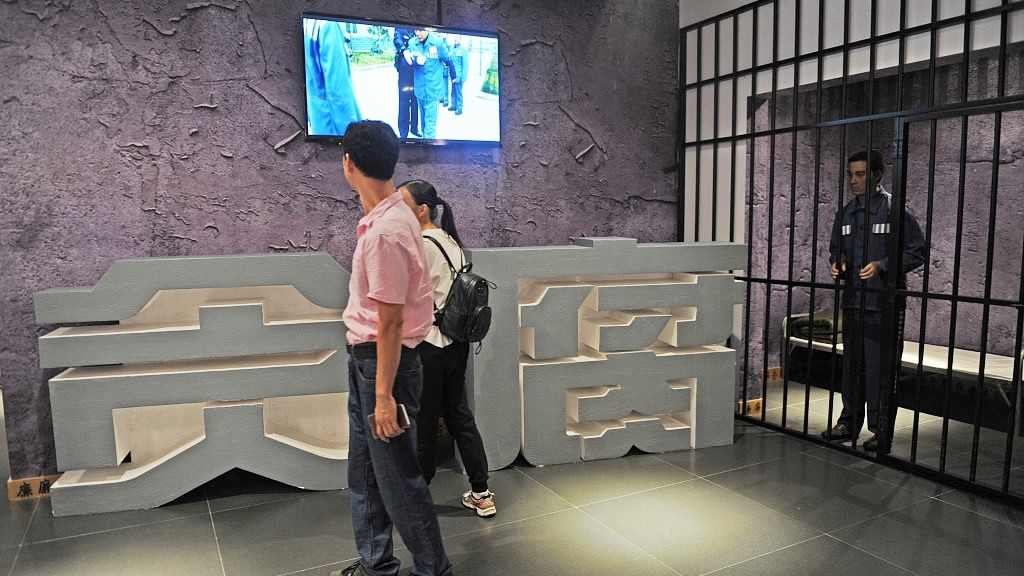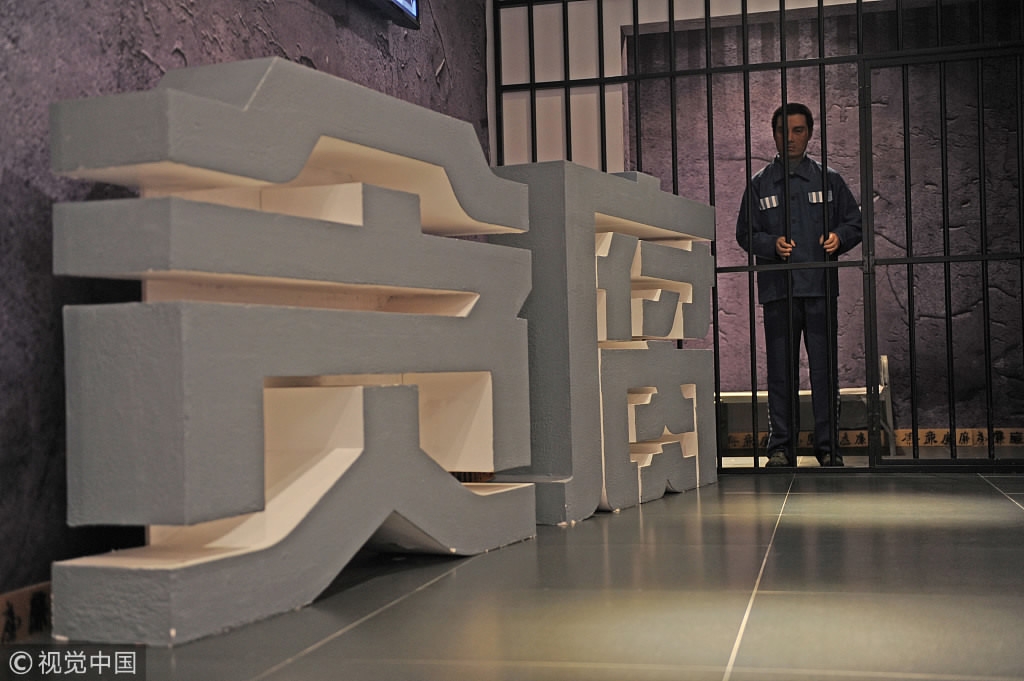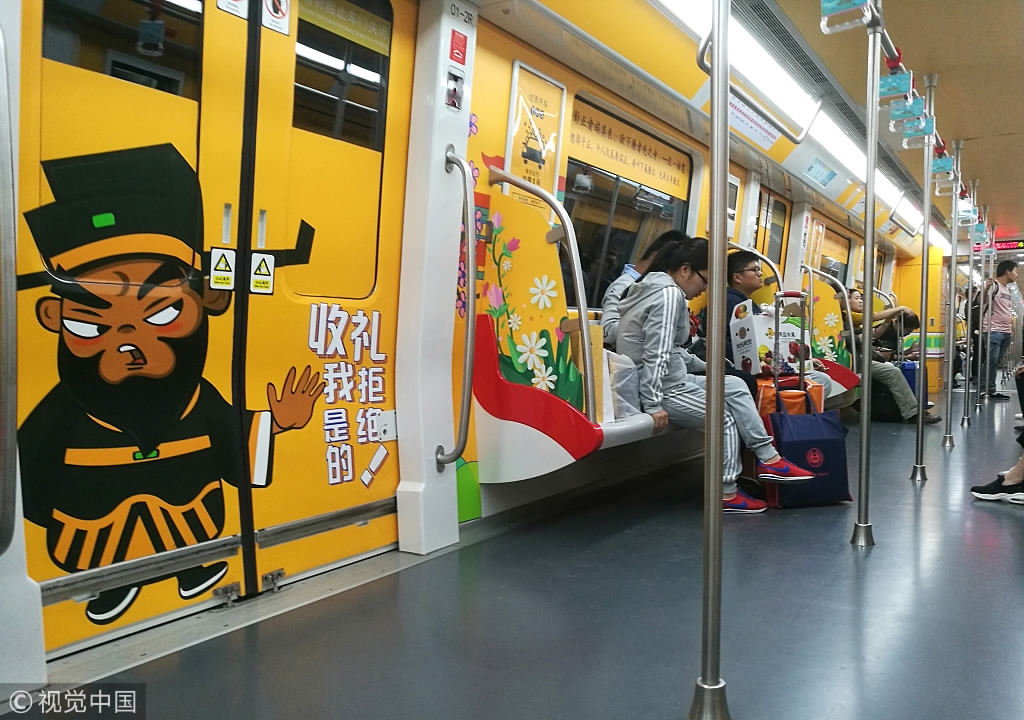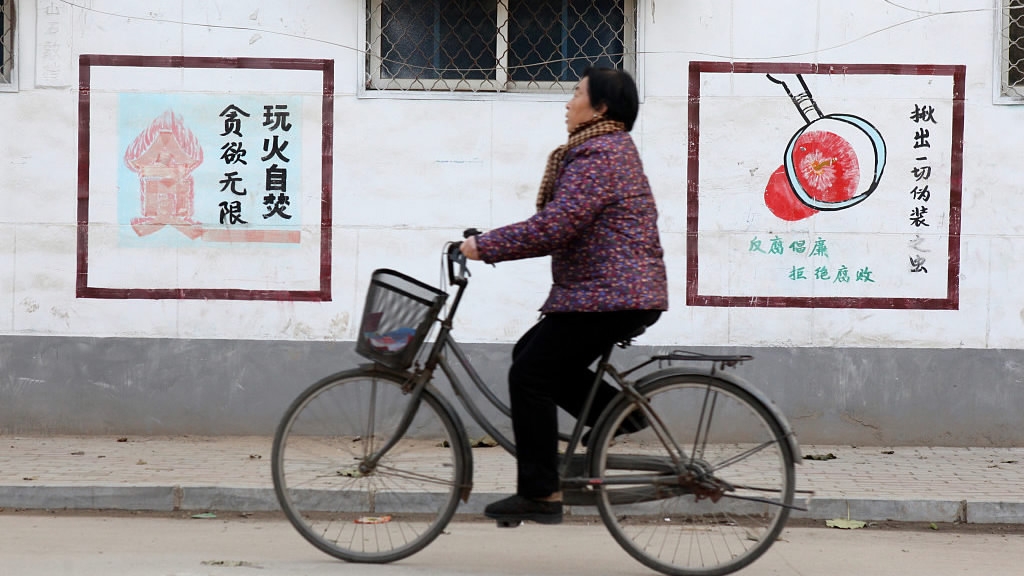
Politics
14:21, 10-Jan-2018
China's anti-graft campaign targets grassroots, poverty alleviation work
CGTN

China's top anti-graft watchdog will lay out more plans to crack down on corruption when officials from the Communist Party of China (CPC) gather in Beijing this week.
The CPC Central Commission for Discipline Inspection (CCDI) is holding its second plenary session from January 11 to 13, which will map out new directions for the country's anti-corruption campaign this year.
Ahead of the key meeting, the CCDI said the crackdown against corruption will focus on grassroots officials, and misconduct and abuse of power in poverty alleviation work.
The country maintained a tough stance in its fight against corruption last year, the CCDI said in a statement on its website on Wednesday. It added that the campaign had turned into a crushing tide, and noted it will continue with a sweeping drive this year.
War flares up at grassroots levels
The discipline body said it has expelled corrupt officials ranking from the grassroots all the way to the top last year.
In the first nine months of 2017, over 338,000 officials were punished for disciplinary violations, 56 of whom were from the ministerial level.

An anti-corruption exhibition was held in Huainan, Anhui Province in August, 2017. /VCG Photo
An anti-corruption exhibition was held in Huainan, Anhui Province in August, 2017. /VCG Photo
Since the 19th CPC National Congress last October, five high-ranking figures at the ministerial level or above have been taken down.
The former head of China's Internet regulator Lu Wei is under investigation for suspected corruption, the CCDI announced on November 21. Lu was the first senior official to have been caught in the sweeping campaign a month after the Party congress.
The other four are: former vice governor of northeast China's Liaoning Province Liu Qiang, deputy director of the Standing Committee of the Hebei Provincial People's Congress Zhang Jiehui, former vice governor of Shaanxi Province Feng Xinzhu and former vice governor of Shandong Province Ji Xiangqi.

Anti-graft cartoon seen in a metro carriage in Hefei, Anhui Province. /VCG Photo
Anti-graft cartoon seen in a metro carriage in Hefei, Anhui Province. /VCG Photo
The CCDI said the fall of the five was a potent sign on which the Party will build momentum and keep up the push against corruption in the years to come.
The agency said a total of 159,100 officials at grassroots levels were punished for violating the CPC's code of conduct and taking bribe in 2017.
From January to November, some 61,000 officials were punished for pursuing a life of extravagance and sticking to bureaucracy – undesirable working styles on which the CPC has been clamping down since late 2012.
End corruption, end poverty
Of the 122,100 cases involving local and grassroots officials last year, 48,700 cases were related to poverty alleviation work, accounting for over 39.8 percent of the total, according to the CCDI.
Rooting out corruption in less developed and rural areas has become an urgent task as the country announced its ambitious plan to wipe out poverty by 2020.
President Xi Jinping has made specific plans to reach the target: lifting 10 million people out of poverty every year between 2016 and 2020. The president has visited areas of concentrated poverty in the past years and called for more poverty elimination efforts.
He has repeatedly said fighting corruption is good for the people and the country.
Crackdown on corruption is listed in the country's poverty relief plan.

VCG Photo
VCG Photo
Last year, nearly 450 officials were punished for misusing some 730 million yuan (about 112 million US dollars) funds earmarked for a poverty relief campaign, the CCDI said.
The number of those being punished in 2017 declined from a year earlier.
Action was taken against some 970 people in 2016, according to the National Audit Office. But the amount of money that was misappropriated is not known.
Xi said at the 19th CPC National Congress that the country and the CPC are determined to carry on with the campaign until corruption is rooted out. That means that the anti-corruption campaign will only get tougher in 2018.

SITEMAP
Copyright © 2018 CGTN. Beijing ICP prepared NO.16065310-3
Copyright © 2018 CGTN. Beijing ICP prepared NO.16065310-3